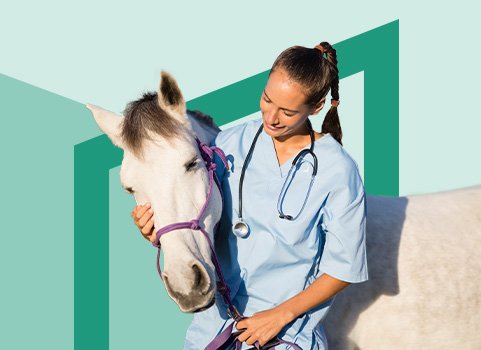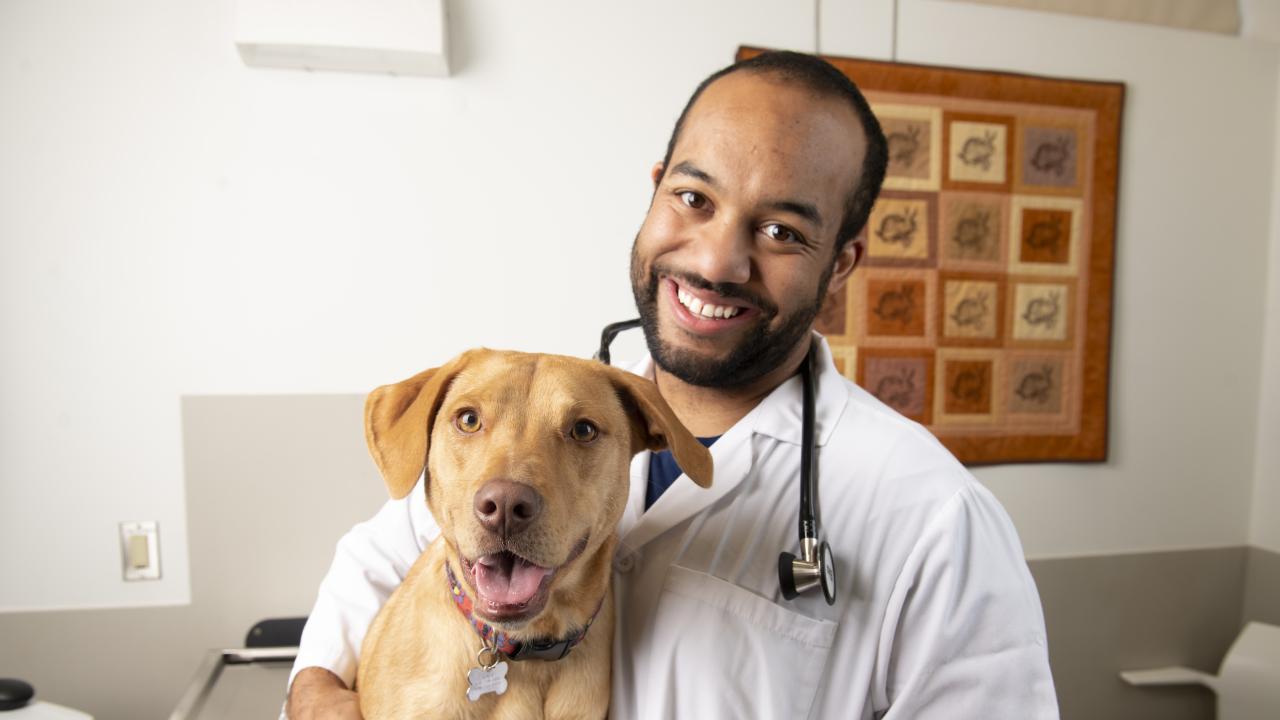Comprehensive Overview to the Solutions Supplied by a Veterinary Oncologist
Vet oncology includes a wide array of solutions intended at diagnosing and dealing with cancer cells in animals. Pet Cancer Surgery. Oncologists utilize innovative diagnostic methods and provide various treatment alternatives tailored to every pet's needs. They additionally prioritize helpful treatment and offer useful sources for family pet owners. Comprehending these solutions is essential for making notified choices. What specific elements of vet oncology can notably affect a family pet's therapy journey?
Comprehending Vet Oncology
Veterinary oncology is a customized field focused on detecting and dealing with cancer in pets. This technique incorporates a vast array of approaches, from clinical therapies such as radiation treatment and immunotherapy to surgical interventions focused on eliminating growths. Vet oncologists are educated to acknowledge the one-of-a-kind symptoms of cancer in different types, allowing them to customize therapy plans to private people.
Along with traditional therapies, vet oncology stresses supportive care, which plays a necessary function in improving the lifestyle for afflicted animals. This consists of pain administration, nutritional support, and palliative care alternatives. Collaboration with family pet proprietors is critical, as they are indispensable to decision-making concerning their family pets' treatment paths. As research advancements, veterinary oncology remains to advance, supplying new hope and boosted results for animals detected with cancer cells. Generally, this field is fundamental for addressing the intricacies of cancer cells in companion animals.
Advanced Diagnostic Techniques
Advanced diagnostic methods play a crucial duty in vet oncology, giving essential understandings into the visibility and degree of cancer in animals. Imaging methods such as ultrasound, CT scans, and MRI are generally employed to visualize growths and evaluate their characteristics. Additionally, biopsy treatments are necessary for obtaining cells samples, permitting clear-cut medical diagnosis and tailored therapy plans.
Imaging Modalities Utilized
Imaging techniques play an important duty in the medical diagnosis and management of cancer cells in animals. Vet oncologists utilize different advanced imaging methods to evaluate lump transition, visibility, and size. Radiography, or X-rays, uses a preliminary sight of bone and chest conditions, while ultrasound gives real-time imaging of soft tissues, enabling thorough examination of internal organs. Calculated tomography (CT) boosts visualization of complex anatomical frameworks and allows 3D reconstructions, aiding in exact lump localization. Magnetic resonance imaging (MRI) is vital for soft cells differentiation, specifically in mind lumps. Additionally, nuclear medicine methods such as positron discharge tomography (PET) assistance determine metabolic task within lumps. Jointly, these methods boost diagnostic accuracy, assisting reliable therapy approaches for oncological people.
Biopsy Treatments Discussed
Complying with the preliminary analysis via imaging methods, getting a clear-cut diagnosis typically needs tissue sampling through biopsy procedures. Veterinary oncologists utilize various biopsy techniques based on the tumor's area and characteristics. Great needle desire (FNA) is a minimally intrusive approach that draws out cells for cytological assessment, perfect for surface masses. Core needle biopsies give bigger tissue samples and are helpful for deeper lumps, enabling histopathological analysis. Surgical biopsies involve excising a section or the whole growth, assisting in extensive analysis. These treatments not only confirm the visibility of cancer cells but additionally aid identify its type and quality, assisting treatment choices. Each biopsy method is picked meticulously to balance diagnostic accuracy with person security and comfort.
Treatment Alternatives for Cancer in Pet dogs
When a pet dog is identified with cancer cells, a variety of therapy options end up being available to assist enhance and take care of the disease high quality of life. Veterinary oncologists commonly recommend a multidisciplinary technique customized to the individual family pet's demands, which may consist of surgery, radiation therapy, immunotherapy, or different treatments.
Surgery is commonly used to eliminate lumps and damaged tissues, potentially causing full remission in some cases. Radiation therapy intends to destroy and target cancer cells, minimizing growth dimension and alleviating signs - Veterinary Oncology Services. Immunotherapy harnesses the family pet's body immune system to combat cancer better, while different treatments could consist of acupuncture or herbal supplements to support total health and wellness
Each therapy alternative lugs its very own advantages and dangers, and vet oncologists function closely with pet owners to design an extensive strategy that lines up with the family pet's details medical diagnosis and the proprietor's desires. The supreme goal is to enhance the animal's comfort and high quality of life throughout their cancer journey.
Radiation treatment for Pets
Chemotherapy is a typical treatment option for pets diagnosed with cancer cells and is usually made use of in combination with other therapies described by veterinary oncologists. This therapy includes the administration of specific medicines made to target and damage cancer cells, thus click this site decreasing tumor dimension and avoiding the spread of the illness. Vet oncologists tailor radiation treatment methods based on the type of cancer, the pet's general health, and the wanted treatment end result.
Adverse effects can happen, as these medications might additionally influence healthy and balanced cells. Usual reactions include queasiness, vomiting, and momentary changes in appetite - Veterinary Oncology Services. Veterinary oncologists are furnished to handle these side results properly, making certain the family pet's convenience throughout the therapy process. Normal surveillance with blood examinations and follow-up visits is important to examine the animal's action to radiation treatment and make required changes. Eventually, chemotherapy can provide considerable advantages, boosting the lifestyle for animals facing cancer diagnoses

Radiation Therapy in Veterinary Medication
Radiation therapy functions as an effective treatment alternative for family pets identified with localized growths, providing a targeted approach to cancer cells management. This technique utilizes high-energy radiation to harm the DNA of cancer cells, inhibiting their ability to multiply. It is particularly useful for tumors that are not open to surgical elimination or for cases where surgical procedure may not be feasible because of the tumor's area.
Veterinary oncologists tailor radiation methods based on tumor dimension, location, and kind, along with the family pet's general health and wellness. Treatment can be supplied through external light beam radiation or brachytherapy, each with distinct benefits. Commonly, multiple sessions are needed to maximize performance while decreasing negative effects.
Although pet dogs might experience momentary reactions such as skin irritation, the total objective is to shrink lumps and relieve signs, ultimately boosting the animal's diagnosis and top quality of life. Accordingly, radiation treatment plays an important role in detailed cancer treatment.
Palliative Treatment and High Quality of Life
Palliative treatment in veterinary oncology concentrates on boosting the lifestyle for family pets facing terminal health problems, ensuring comfort and self-respect in their last days. This specialized method focuses on discomfort administration, signs and symptom control, and psychological assistance. Veterinary oncologists evaluate each family pet's specific needs, tailoring treatments to relieve discomfort and Website improve general well-being.
Techniques might include carrying out medications for discomfort alleviation, managing nausea, and dealing with various other stressful symptoms. In addition, dietary support is commonly given to keep toughness and enhance hunger. The psychological element of palliative additional info treatment is similarly essential; producing a calm atmosphere helps in reducing stress and anxiety for both animal and owner.
Ultimately, the objective of palliative treatment is to permit pet dogs to appreciate their staying time with as much delight and self-respect as possible. By concentrating on convenience and lifestyle, vet oncologists play a necessary function in guaranteeing that animals and their families browse this difficult journey with concern and understanding.
Assistance for Pet Owners During Therapy

Psychological Support for Owners
Charting the psychological landscape during a pet's cancer cells treatment can be a frustrating experience for owners. The uncertainty bordering medical diagnosis and prognosis can bring about sensations of unhappiness, anxiety, and helplessness. Vet oncologists identify the value of psychological support and often offer advice to help owners navigate this tough trip. Interaction is important; going over therapy alternatives and potential outcomes can minimize some anxieties. In addition, offering reassurance that emotional reactions are valid fosters a supportive environment. Lots of oncology facilities might additionally recommend support groups or counseling services tailored for animal owners, assisting in common experiences. Motivating proprietors to prioritize self-care during this time around is important, as their emotional well-being straight affects their pet's convenience and total therapy experience.

Resources and Educational Materials
Guiding with the intricacies of a family pet's cancer cells treatment can be intimidating for proprietors, making accessibility to trusted sources and academic materials necessary. Veterinary oncologists often give a variety of handouts, brochures, and online products that explain therapy options, possible side effects, and treatment techniques. These sources help demystify the procedure and equip pet owners to make enlightened decisions. Additionally, numerous oncology facilities provide accessibility to sustain online forums and teams where proprietors can get in touch with others encountering similar difficulties, cultivating a sense of area. Educational webinars and seminars carried out by vet professionals even more boost understanding, guaranteeing that proprietors are well-appointed to navigate their animal's journey with cancer therapy with self-confidence and knowledge.
Frequently Asked Concerns
Exactly How Can I Prepare My Pet Dog for a Vet Oncology Check Out?
Preparing an animal for a vet oncology go to entails gathering clinical documents, noting signs, and making certain the pet dog is comfortable. A calm temperament and acquainted items can aid ease anxiety during the appointment.
What Are the Signs My Pet May Have Cancer?
Indicators that an animal may have cancer include inexplicable weight-loss, consistent vomiting or diarrhea, uncommon swellings or swellings, sleepiness, modifications in hunger, difficulty breathing, and alterations in actions. Motivate veterinary attention is important.
How Can I Assistance My Family Pet Mentally During Therapy?
Sustaining an animal emotionally throughout treatment involves giving comfort, maintaining regimens, using gentle love, and making sure a calm setting. Taking part in silent play and routine companionship aids ease tension and cultivates a complacency.
Exist Alternate Treatments for Family Pets With Cancer?
Alternate treatments for family pets with cancer include acupuncture, natural therapies, and dietary support. These strategies may match traditional treatments, promoting general health. Consulting with a vet is necessary for safe and efficient combination of different therapies.
What Expenses Should I Anticipate for Veterinary Oncology Solutions?
The awaited costs for veterinary oncology solutions can differ substantially, frequently affected by diagnostics, therapies, and recurring care. Animal proprietors need to prepare for costs ranging from appointments to specialized treatments, reflecting the complexity of cancer administration.
Partnership with pet dog proprietors is crucial, as they are essential to decision-making regarding their family pets' therapy courses. Each treatment choice lugs its very own advantages and threats, and vet oncologists function very closely with family pet proprietors to create an extensive plan that lines up with the animal's certain diagnosis and the owner's wishes. Animals may experience short-term reactions such as skin irritation, the overall purpose is to reduce growths and ease signs, eventually enhancing the animal's prognosis and top quality of life. Support for animal owners throughout therapy is crucial in steering through the psychological challenges associated with a pet's cancer cells diagnosis. Preparing a pet for a vet oncology see includes gathering clinical records, noting signs and symptoms, and making certain the family pet is comfortable.